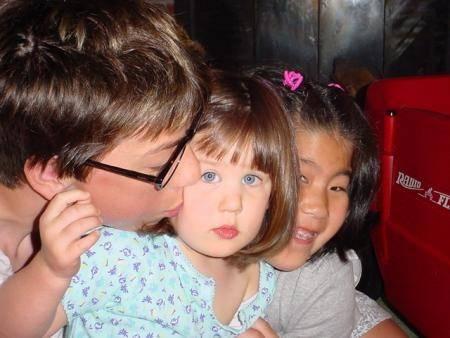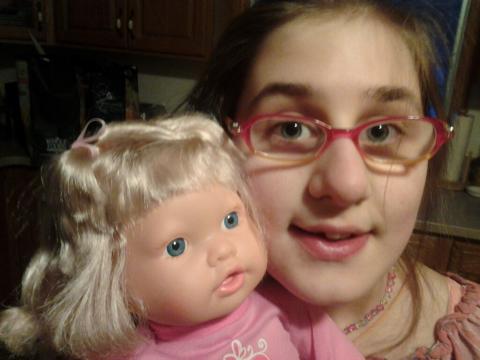Olivia's Journey
GEMSS would like to thank Olivia and her mother for their generosity in sharing this story with us. You have made the site come to life with the addition of your thoughts and feelings. Thank you so much!

We recognize that no one story of a child who has an undiagnosed condition can represent all undiagnosed children. However, we offer this one unique story and hope to include other stories in the future.
Olivia is currently in 7th grade and is a sweet, engaging, likeable young woman. She has sun-streaked hair and beautiful bright blue eyes. As the fourth child in her family, Olivia grew up in a home where a lot was known about child development! Her mother noticed that, although Olivia met many milestones, she met them at the “tail end” of what was considered the typical range. When Olivia was about 19 months of age, Olivia’s pediatrician really listened to her mother’s concerns and recommended a visit to a neurologist.

That visit started a journey through many medical and genetic tests in several states that continue even today. But, it has not led to a conclusive diagnosis in over 13 years later. What is known definitively is that Olivia has seizures, has a slightly small head, has some delays in her motor and cognitive development. Sometimes she appears to have traits of a person on the autism spectrum. Olivia is included in some classes for science, art, and lunch at her school.

Her mother states some pros and cons of having a child who is undiagnosed. On the negative side, there is the urge to read and keep up with any kind of test that might shed some light. This is important because there are other children in the family and they might benefit from knowing if Olivia’s issues originate in genetics before they opt to have children of their own. On the positive side, if the tests find a cause for her issues, there might be something else that can be done to help her. And because Olivia doesn’t fall into a specific category, she seems to be able to access services from other categories that are related.
There is a feeling of accepting Olivia as the person she is and embracing her. “She is okay and she is who she is!” says her mother.
There are supports that Olivia’s mother receives from colleagues at her job which involves disabilities. Her mother finds that she has so much in common with other parents that center on issues, not just a diagnosis. For example, toilet training strategies, or learning about supports for children who have autism have been helpful to her mother.

Olivia nowHer mother’s advice is to try to make participation in educational programming have meaning and ensure that the educational system has high expectations of your child. She wants her daughter to learn skills that will help her later in life, like using an ATM card, or learning that she can buy things with money she earns. She wants people to know that the “sky is the limit” when a child is undiagnosed!
If you have a story you would like us to consider adding to our website, please contact us.
